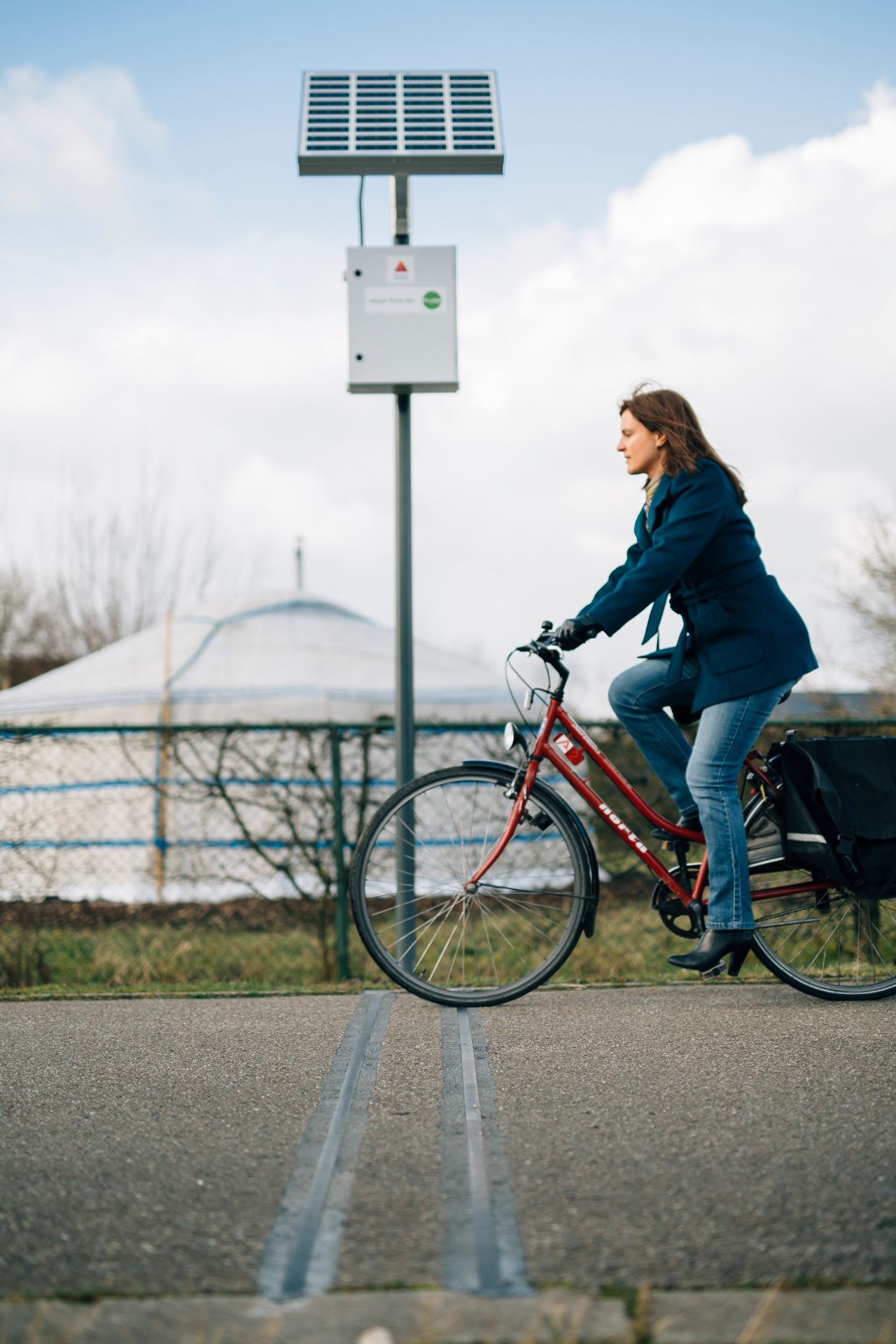The Province of Antwerp launches the CycleDataHub, a crossroad for all bicycle data in Europe
Several cities, but also research facilities and businesses own bicycle data. They collected data with counters, measurements, apps, surveys, cameras. Quite often, these data remain out of sight, because their use was restricted for inhouse research. However, these data offer an opportunity to compare, to digitally interact, and to that purpose the province of Antwerp launches the CycleDataHub, a crossroad for all bicycle data in Europe.

In the framework of the European BITS project on bicycle data, with partners in Germany, the Netherlands, Denmark, the United Kingdom and Belgium, the province of Antwerp developed a European crossroad for bicycle data on cycledatahub.eu. The aim is to provide a central hub where anyone can discover what data on cycling is available.
With the CycleDataHub the province of Antwerp shifts into a higher gear in working on bicycle data and its provincial CycleBarometer.
Our experience with data in the bicycle world has given us a place at the international design table. Everyone can register and upload existing and available weblinks on the CycleDataHub. This contribution is an important new step towards a world with bicycle data high on the agenda, it encourages to acknowledge the relevance to incorporate bicycle data in the broader frame of mobility policies.
Call for data
By the combination of different data sources on the CycleDatahub innovative insights emerge.
That is why we call all bicycle data professionals to share weblinks to their data (or a sample) on the CycleDataHub. With more data, we can find a common bicycle data language, we can compare bicycle data across the border and in statistically valid numbers.
All datasets are categorized in the hub with labels such as cycle infrastructure, cycle use, health, safety, environment/emissions and bicycle business performance. At this moment, the CycleDataHub mainly contains data from the BITS partners, and obviously all data that are collected in the pilot projects in the BITS project.
With the CycleDataHub the province of Antwerp has created the tool to centralize available cycle data in order to accelerate and enable the development of an European bicycle data policy and bicycle data standards.
Challenge
The different data formats consist in a continued challenge for the BITS consortium. From experience with all kinds of bicycle related data, we search for uniformity in content, structure, format, quality and exchangeability.
Based on good practice and existing formats in bicycle counting, bicycle parking and near accident detection, the province of Antwerp together with the BITS partners and advisors have suggested data standards for counting that allow for the comparison and the combination of different datasets regardless of the collecting technology.
The BITS project
The BITS project is co-financed by the Interreg North Sea Region programme of the European Union. This programme wants to create an impact on sustainable transportation and green mobility. The project has ten partners from several countries around the North Sea. They focus amongst other things on the reduction of emissions and clean air by increasing the use of the bicycle with at least 10 %.
The Province of Antwerp has created the CycleDataHub and tested an intelligent 3D camera in Bornem (BE) as a pilot. The Province of Overijssel (NL) coordinates the BITS project. Cycling Industries Europe (BE) takes care of the wider European communication. Zwolle (NL), Aarhus (DK), Bruges (BE), the East Riding Council of Yorkshire (UK) and Baron Mobility (DE) carry out pilot projects with intelligent traffic lights, cycle path lighting, bicycle parking, counters and gamification apps. Oldenburg university (DE) works on standards, KPI’s, visualisations and enriching existing datasets. VIVES (BE) contributes with evaluations and survey. Aarhus (DK) also created a state-of-the-art report with 100 cycling solutions.
